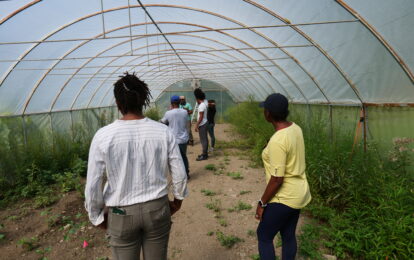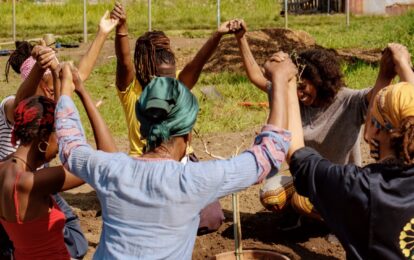ORFC 2026 8 – 9 Jan
ORFC 2026 8 – 9 Jan
A herbal ley is a complex mixture of grasses, legumes and herbs which, when well-managed, can offer benefits for wildlife, livestock, emissions and soil. In this session you will hear from the Cotswolds Seeds and FarmED team about the benefits of multi-species herbal leys, seed mix selection and how to establish and manage new swards.
A transition to agroecological, climateresilient food and farming systems requires new grain systems, from seed to field, to baking and retailing. Our current agricultural system is almost exclusively focused on productivity and consistency, unintentionally creating an unjust and unhealthy grain system from soil to gut.
Food has the power to restore our physical and mental health, bring families together and reconnect us with our landscape, culture and history. Sadly, in our present climate, it polarises, confuses and perpetuates chronic illness. This all-female panel including a doctor, farmer, barrister, psychiatrist and vet-turned nutritionist will join together to share their stories of how agroecological methods are healing our bodies, minds, communities and our land.
The connection between the farming community and wider communities has often been weak. For the food system to meaningfully change to an agroecological model, all communities need to work together towards a shared vision. A number of Sustainable Food Places (SFP) members and our partners have sought to bridge that gap using a partnership approach, facilitating spaces where fruitful dialogues between farmers and their communities can happen. This approach is also a successful methodology to…
Policymakers are increasingly recognising the potential of organic farming to help meet emissions reduction targets and to improve biodiversity on farmed land. Organic sector bodies are working with the UK Government and the devolved administrations in Scotland and Wales to develop Organic Action Plans aimed at driving growth in organic farming.
What happens if landowners entrust their land to more distributed and diverse forms of ownership and governance than a single bloodline? Might a culture of diversity lead to even greater resilience?
Shifting how we talk about food, how we think about food, and how we relate to food is directly tied to the fight to ensure future life on this planet. As Black, Indigenous, and diasporic people of color (BIPOC) food leaders have long argued, dominant food narratives perpetuate extractive and exploitative norms rooted in white supremacy culture - prioritising profit over collective wellbeing. Without intentionally addressing deep narratives to change the way we think about…

Black Farmer Fund (BFF) was created by Black farmers who were frustrated with the limited financing options available to them, with the hopes of creating a funding vehicle that would challenge the racial injustices and wealth inequalities faced by Black Food actors. BFF is by us, for us, with a community of 12 Black farmers and food systems entrepreneurs from across the state leading the fund’s governance and making decisions around which applicants receive funding.
…
Agroecology, food sovereignty, climate justice and antipoverty economics aim to value all life by ending power relations, including sexism, racism and every form of discrimination. A women’s movement with a practical perspective on agroecology, includes all who identify as women and/or as antisexist, not only to create spaces free of discrimination but to revalue the 'unseen' work that mainly women and gender marginalised people do. The global economy could not function without this work. Our…
